The UK is oozing with multicultural diversity. Wherever you go in Britain you are guaranteed to find people, foods and shops from all over the world sharing their food and way of life. The UK largely celebrates it’s diversity and cultures too which is what makes it so special.
Ok but why is the UK so Multicultural?
- UK Skills Shortages – Immigration built the UK’s diverse population
- The UK’s an attractive place to live
- The British Empire – The UK has been multi-cultural for centuries
- Free movement – The European Union
The UK’s multiculturalism was borne out of necessity in a lot of ways. For instance, to fill a labor shortage and to attract talent for key jobs. Whatever the reason though, the UK has benefited from its diverse society. Over the years, the UK has become a country that attracts the masses.
UK Skills Shortages – Immigration built the UK’s diverse population

In the 1960s and 1970s, the UK had a massive skills shortage in manufacturing, food, building, textiles, farming and nursing backgrounds. Immigrants from India, Africa, Jamaica filled that gap at the time.
As well as bringing their skills they also brought their knowledge of food and spices and that’s what sparked the multicultural revolution in the UK.
Different communities from different regions of the world started to settle in certain areas in the UK. If you go to Leicester for instance, you’ll find lots of people with an Indian and Indian African background or Birmingham which has a large Jamaican and African community as well as a Pakistani community.
If you want to know more about the most multicultural cities in the UK, check out our article here.
To this day doctors, plumbers, workers in farms and supermarkets come from countries all over the world from Poland to India to Australia.
The British Empire – The UK has been multi-cultural for centuries
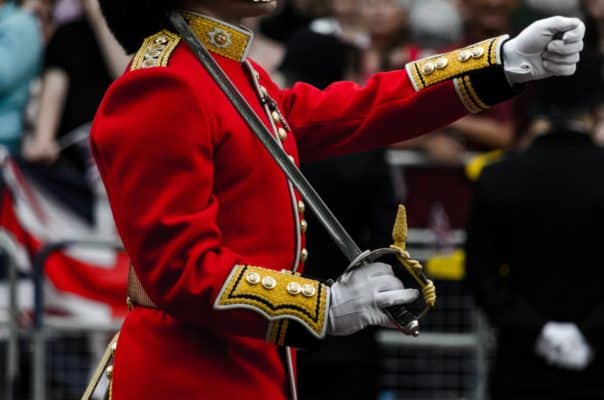
So you’re probably already aware of the British Empire. You may not be aware that countries that formed part of the Commonwealth were still allowed to remain, British Citizens, our parents included.
As a result, many people from Commonwealth countries moved to the UK because of the attraction of work prospects, safety, and a new life.
My grandmother who was born in India and lived in Africa could not speak a word of English. She had however always held a British passport and always considered herself to be British.
The UK’s an attractive place to live
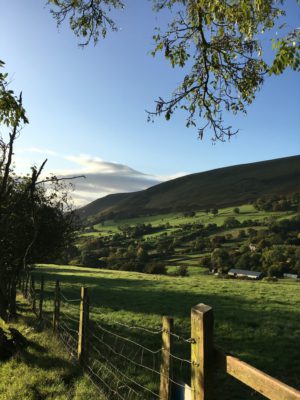
The UK really is an amazing country to live in. It’s the land of opportunity in many ways yes, but also a lot to be said for lifestyle and a country that’s really special.
With a minimum of 25 days of holiday, work-life balance is generally good in the UK. Sick days are not deducted from annual leave allowances. Maternity and paternity leave (9 months and 2 weeks) are generally attractive as well. There is also our NHS (The National Healthcare System), which offers full healthcare for anybody in the UK free.
With a thriving economy, whatever your profession, your skills are likely to be needed in the UK. Massive cities outside of London including Manchester,Birmingham, Leeds and Edinburgh that all champion different industries mean there is always opportunity.
The weather is relatively mild all year round, but with clear seasons. Our summers are pretty warm too.
If you want a more comprehensive view of the weather in the UK we’ve written a Guide to UK Seasons which you can check out here.
The UK is a great base to tour Europe as well. Whether you want to fly, train, drive or take a cruise ship to Europe, all of these options are available to you. In terms of flying as well, there are a number of budget airlines that operate all over the UK, which makes travel very affordable too. It’s a great thing to take advantage of.
The UK is small but has variety across every town and city you would want to visit. This means it’s easy to travel up and down the country as well. So even if you’re looking to do a day trip somewhere in the UK, the chances are you can probably do it.
Free movement – The European Union & UK Multiculturalism

Before Brexit, many people all over the European Union were free to travel, live and work in the European Union without requiring any special visas. This undoubtedly has added to the diversity in the UK,as it will have in other European Union States as well.
Whilst the UK is divided on the issue of Brexit, with immigration being a major topic of conversation. The fact remains that the UK has prospered hugely with the influx of migrants over the years and the culture of the country has changed dramatically (for the better in our opinion)
There’s lots of debate as to whether the UK’s EU membership has benefited the economy or not, but one thing is clear; The UK’s membership has allowed big firms to trade nationally and internationally, which has increased the UK’s dependence on other countries in the EU.
Whether people of different backgrounds live in the UK or not, people will be communicating and trading with people all over the work, including Europe because it’s beneficial for everybody.
How has UK culture changed with Multiculturalism?

Before we get into this, let’s define what multiculturalism actually is. We think this definition from Wikipedia best defines it.
Multiculturalism is a word that describes a society where many different cultures live together. where all cultures are respected as much as each other. A multicultural society would be composed of people from different ethnic backgrounds and cultures living and working together. In society when people from different backgrounds link with each other’s culture shows the acceptance of each other’s culture and background.
Wikipedia
When you think of traditional culture in the UK, you imagine people drinking tea, wearing bowler hats and eating on fish and chips. Whilst this is true and many traditions have been adopted by people who have moved to the Uk from other countries, there are some other cultural twists that have emerged from the UK’s changing population.
The British Curry Culture – Following the migration of Indian and Pakistani communities to the UK in the 1960s and 1970s, British curry culture was born. There’s nothing more British than going for a curry on a Friday night.
The UK is a liberal country and people are free to celebrate their cultural festivals and believe in whichever faith they please. People of all creeds gather at each other’s festivities, which is just really nice isn’t it.
Great Examples of festivities in the UK celebrated by all are:
- Nottinghill Carnival – A celebration of West Indian Culture and one of the largest street festivals in the world.
- Hogmanay – A Scottish festival celebrating the new year, but with performers from all over the world.
- Diwali – A Hindu and Sikh festival celebrated all over the UK with street parties and fireworks.
What are the negative things about Multiculturalism in the UK?
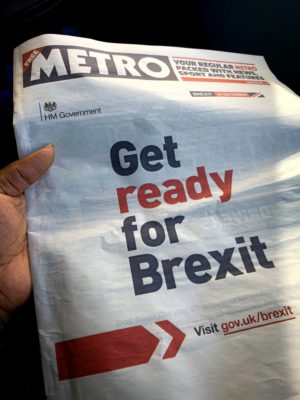
The UK has adapted to it’s changing population over the years. In the 1960s and 1970s when there was a mass influx of people from the west indies, India and Bangladesh, there was a lot of discrimination, and this continued over the course of a few decades.
There are still instances where diversity and people speaking multiple languages can create divide and segregation. This, in turn, breeds feelings of mistrust which is detrimental to society as a whole. Unfortunately, you can see this across many different communities in the UK.
This post was written for the Huffington Post by a self-proclaimed ‘Product of British Multiculturalism’ gives personal examples of such frustrations experienced between minorities and British born minorities in the UK.
Brexit, Britain’s exit from the European Union, is arguably a result of failings in the UK in society integrating effectively. It’s the biggest issue leading to Britain’s exit from the European Union was on the topic of immigration.
How is the UK defending multiculturalism?
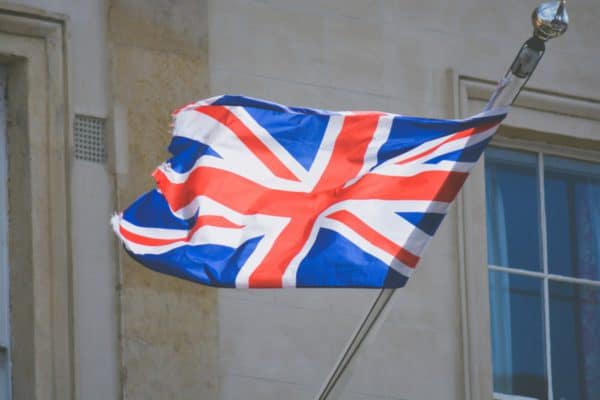
Thankfully legislation, perceptions and cultural norms have changed and multiculturalism is encouraged by the government and the media. That’s not to say the UK is perfect, but on the whole, it is a liberal country and people are encouraged to see each other’s differences as a strength.
In many peoples, everyday lives, especially those working with multinational companies, people are interacting with other people in different countries. We are dependent on each other to complete our everyday tasks. This helps breaks down barriers. The UK is home to many multi-national companies that have offices worldwide and in turn helps this.
Travel – well we had to mention this one given that we are travel bloggers. Travel to other countries by the masses has never been so easy. The UK is home to a number of budget airlines facilitating low-cost travel.
For more information on low-cost budget airlines in the UK, here’s a link to an article where we have reviewed all of the main budget airline carriers in the UK right now.
The more people travel, the more culturally educated everyone becomes, on everyone else. This, in turn, leads to an appreciation of people’s values and social norms.
Are some parts of the UK more multicultural than others?
Some parts of the UK are more multicultural than others. Demographics are different all over the country. Being multicultural though isn’t just about how many different races of people there are in a particular town or city. It’s about how well integrated they are.
London, for instance, is a well-integrated city. It’s a city with many different people, from different backgrounds and sexualities enjoying each other’s food, learning each other’s languages and celebrating each other’s festivals. It’s not perfect, no city, town or village is, but generally, people are accepting of each other
Manchester on the other hand, on one hand, can be considered very multicultural with a recent study by Global Languages Study estimating that over 100 languages are spoken in the city. That sounds incredible right?! But our question is if so many languages are spoken, how do people speak to one another?
Multiple languages can create a divide between people and social inequality. Racial inequality is an issue in Manchester. This study performed by Manchester evening news shows that people of different races have an unequal chance of employment and higher rates of homelessness
What about the rest of the UK?

The map above shows racial diversity regions across the UK, with blue areas showing low diversity rates, going up to red areas showing high levels of diversity. Moving from left to right, the three graphs show diversity in the UK in 2016, then 2061 (The UK with Brexit) and finally 2061 (The UK without Brexit).
The message is clear, the UK is becoming more ethnically diverse by the day, with or without Brexit. It’s therefore vitally important that we all get along and build an inclusive society.
Which UK country is the most multicultural?
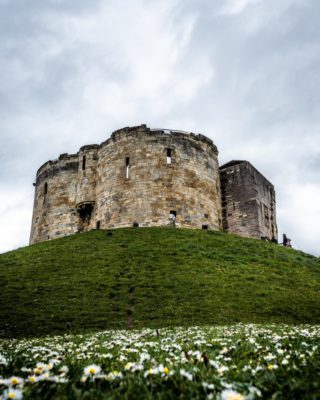
So the UK is made up of four countries – England, Scotland and Wales and Northern Ireland.
- England – 20 % from minority backgrounds
- Scotland – 16% from minority backgrounds
- Wales – 20% from minority backgrounds
- Northern Ireland – 1.8% from minority backgrounds
This information has been verified with the Scottish census government website as well as the UK Government sources.
England – The UKs Largest Country
England is the most influential of the UK countries, home to the Queen, The Priminister and the Houses of Parliament. All important decisions are made here
England in numbers and statistics has the most culturally diverse towns and cities in the UK.
England was home to some of the most industrial cities in the UK such as Bradford, Manchester, Luton, London, and Birmingham. Because of this, you tend to see more ethnic diversity and minority groups in these areas.
This is understandable given that the biggest cities had the most prospect for work in the 1960s. If we were coming to the UK, we’d head to the cities or towns where we could get employed, wouldn’t’ you?
Is England the most multicultural country in the UK? In numbers, yes, but in terms of how well integrated it is is, probably not. Incidents in London, Manchester and the north of England between cultural groups are evidence of that.
It’s not all doom and gloom for England however. A study conducted by the popular newspaper, The Mirror back in 2016, shows that England is becoming a more tolerant society than five years ago. By now, everybody should be hugging each other, right?
Scotland – The UKs Second Largest Country
Don’t underestimate Scotland, they may be an Independent country away from the UK one day. Home to Edinburgh – their Capital and Glasgow.
In terms of ethnic diversity, Scotland cannot compete with England on numbers and statistics. But, in our opinion, Scotland makes up for it in worldly events.
Edinburgh for instance is known as festival city, hosting Comedy Festivals, New Years festivals, Arts and music festivals celebrating not only their own culture but those from other countries as well.
For more information on Edinburgh and to find out why Edinburgh is the capital of Scotland, check out our article here.
Glasgow and Aberdeen are also massive Scottish cities with growing multicultural populations alike.
According to a study that was conducted in Scotland in 2014, cultural diversity was on the rise, with the report showing that one in six Scottish households held two or more multi-ethnic nationalities. Now if that’s not multiculturalism, I don’t know what is.
Restaurants serving international cuisine have risen in popularity with many new restaurants opening serving up a variety of different cuisine including Middle Eastern, Polish, Spanish and of course, Indian curries (now a British staple).
Don’t worry though there are plenty of restaurants where you can get some Scottish favorites, including Haggis as well as fish and chip shops serving fried mars bars (it’s a Scottish delicacy)
Is Scotland the most multicultural country in the UK? In numbers, no. If however, you look at the country as one setting a multicultural precedence and an environment of acceptance and appreciation of cultural differences, then yes it is.
If a UK country is trying to get ahead of the multicultural curve, it’s Scotland in our opinion, I mean they even have a culture strategy. Check it out here.
Is Wales as multicultural as it’s counterpart UK countries ?
Wales is not as ethnically diverse as the likes of Scotland and England but is home to people of a number of different ethnic backgrounds.
Welsh cities like Cardiff, Swansea and Newport are the most culturally diverse, with people from middle eastern, Indian and European backgrounds.
The Welsh government are also trying to foster a multicultural society and promote Wales as a ‘Country for Everyone’.
It looks like it’s working too. In 2005 the Institute for Public Policy Research found that Cardiff, when compared to major cities in the rest of the UK had the most positive attitude towards asylum seekers of all the cities.
To find out more about Wales and it’s multiculturalism, here’s an article from Wales Online
Northern Ireland – A developing multicultural society
Northern Ireland has had a slow change to a multicultural society, but this is understandable given the political and religious instability the country has experienced over the years.
That said, Chinese, Indian, Polish and Czech people are all becoming part of the new Northern Irish population. Unfortunately over the years, foreign nationals have been subject to some hate crime in the past.
Northern Ireland is, however, keen to take its place in Europe and change any negative perceptions of the country. This is evidenced by Northern Ireland’s Bid for Belfast to become the Capital of Culture in 2023.
To find out more about Northern Ireland’s bid for Belfast to become the capital of culture, check out this article by the BBC.
Whether Northern Ireland will be able to continue with this bid following Brexit remains to be seen.
The UKs Diversity is it’s strength in today’s global society

It’s more important than ever for the UK to be seen as a multicultural society.
Because of advancements in technology and the size, scale, and breadth of multinational companies worldwide, the UK needs a mixture of talent to help, coordinate, negotiate and facilitate trade deals with the rest of the world.
From the top levels of government to the boardrooms of large companies, companies need a mixture of people to represent them in order to broker deals with customers all over the world.
So really, the UKs quest for multiculturalism is also a case for it’s very survival in today’s world.
The UK’s Multicultural Monarchy
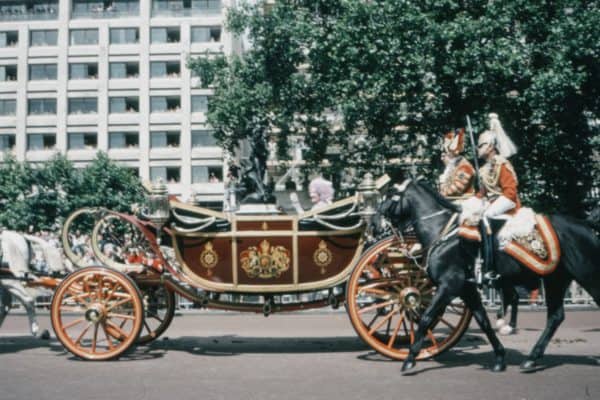
Our beloved queen, the epitome of all things British is married to a son of the French aristocracy, Prince Philip.
But it’s not just this generation of Monarchs. Way back as the 1500s, Queen Mary married Phillip of Spain. There are also countless Monarchs of the past that have roots in a number of different European countries.
Recent Royal alliances, notably Prince Harry’s wedding to Meghan Markle (A lady of mixed race) is a real sign of changing times. A wedding like this would have been almost unthinkable, even a decade ago.
Is the UK one of the most multicultural countries in the world?
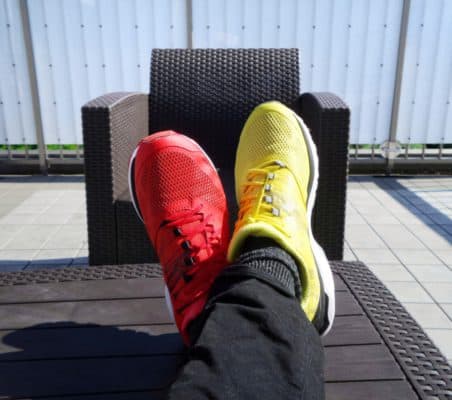
According to Wikipedia, the UK is the 110th culturally and ethnically diverse country in the world.
Whilst this may be true at the time of writing this post, what is also true is that the UK is becoming more culturally and ethnically diverse by the day.
There is a focus in the UK of a “Two Way Street” between minority and majority groups within the UK, and both are responsible for creating an integrated society.
Diversity is Britain’s greatest strength. You only have to look at our sports teams to see the strength the UK has in it’s varied population.
Is the UK losing its own culture with so many new ones coming in?

A criticism of the UK by many is that the country has in some ways lost its sense of identity given that it is now home to so many people from different backgrounds trying to maintain their own cultures as well as adapting to the social norms in the UK.
The truth is that the UK’s culture always has been that of adopting new cultures. As far back as the 1700s, there are records of Chinese sailors arriving on the shores of Britain. Not only that but in the 1800s and 1900s, Britain has provided refuge to European migrants fleeing persecution in their own countries.
It can also be said that people migrating to the UK are generally attracted to the UK ‘way of life’. So people coming into the country will hold up British values just as much as people who are born in the UK.
Why we think multiculturalism is a good thing for the UK
Nobody is perfect, and the same concept can be applied to cultural practices as well. We think it’s a great thing when people from different backgrounds and beliefs are encouraged to speak to one another. In doing so, they dissolve their own misconceptions and gain new perspectives.
When we travel or live in different countries, we experience the same change in opinion. We’re all learning all the time, and diversity in the long term can only be a good thing for everybody.
If we had to list the benefits though this we’d summarize it as follows:
- Understanding of Cultural Differences, and respect for one another
- Increased creativity in everyday life, from our clothes to our cuisine
- A different perspective of rights and wrongs
- An opportunity to hear and learn a new language
In Conclusion
The UK is an awesome multicultural country that is becoming more vibrant every day. We hope we have answered the question as to why the UK is multicultural. Essentially it’s a result of opportunity and necessity for the UK and the people moving here over the years.
The UK’s history is that of cultural diversity as well. What’s really cool about the UK is that it’s kept its cultural norms but has also adopted cuisines and practices from people of other countries too. The best example of that is the British Curry.
Multiculturalism is a good thing for society in general. With huge multinational companies operating from multiple locations, and people speaking to other people in different countries everyday, its actually really important that the UK carries on the path that it’s on.
It’s also about tolerance, the better everybody understands each other the more tolerant we all become, which surely means less conflict and issues in the world.
What are your views on Multiculturalism in the UK? How well, are we really integrating with each other after all of these years?
Maybe these are questions that we all need to answer and address individually, in order to make the UK and our world a better place.
Would you agree?
If you enjoyed this article, why not check out some of our other articled for the UK, links below.
- Really Good Things ABout Leicester
- What is Birmingham Famous for?
- How Many Cities Have An Underground Metro System in the UK?
- High Tea vs Low Tea – What’s the Difference?
- Why Does London Have So Few Skyscrapers?
- A Guide to the UK seasons – When it’s Hot and When it’s Not
- What are the Most Multicultural Cities in the UK?
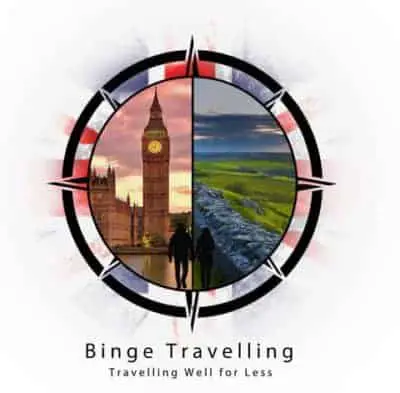
2 thoughts on “Cultural Diversity in the UK – Why The UK is so Multicultural”